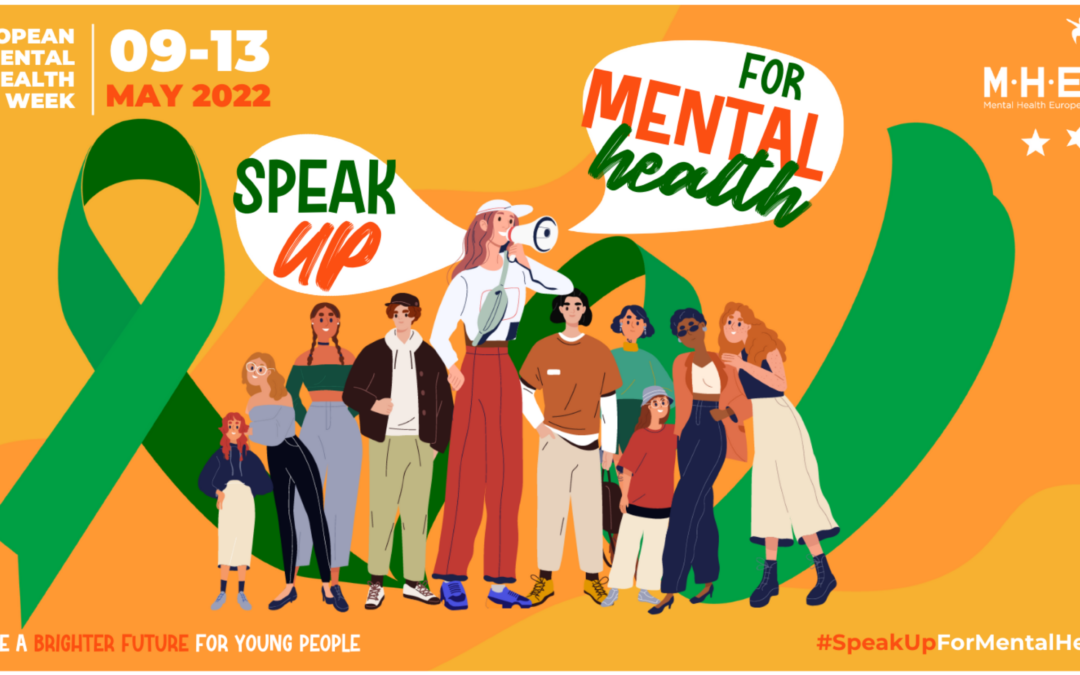Author: Sophie Smit (European Schoolnet)
This week is the European Mental Health week, organised by Mental Health Europe (MHE). It is the third edition of the European Mental Health Week, with this year’s theme ‘Speak up for mental health’. It is especially important now since it seems that more youth struggle with their mental health because of the COVID-19 pandemic and the lockdowns during this period (Panchal, Salazar de Pablo, Franco, Moreno, Parellada, Arango & Fusar-Poli, 2021).
Researchers that study cyberbullying, have expressed their concerns about the possible influence cyberbullying has on youth mental health. Severe forms of cyberbullying can result in mental health problems (Tokunaga, 2010). Because of these concerns, cyberbullying is often described as a public health concern (Fahy, Stansfeld, Smuk, Cummins & Clark, 2016). Cyber-victims report more depressive symptoms, social anxiety symptoms and below average well-being than their peers who are not victims of cyberbullying (Fahy et al. 2016; Bottino, Bottino, Regina, Correira & Ribeiro, 2015 and Fisher et al. 2016; Hamm et al. 2015, Kowalski and Limber, 2013 as in Kim, Colwell, Kata, Boyle & Georgiades, 2018). It is important to understand the impact that cyberbullying has on mental health on youth. As previous studies show, cyberbullying can cause ‘internalizing’ problems for youth. To address cyberbullying and help and protect young people, cyberbullying instances must be identified. Which often happens through reporting by youth themselves (Pettalia, Levin & Dickinson, 2013). However, young people often do not speak up when they are cyberbullied, for various reasons, such as embarrassment or lack of trust that it will help them (e.g. Agaston, Kowalski & Limber, 2007 as in Pettalia et al. 2013).
It is crucial that young people feel that they can speak up both about their mental health problems and to report cyberbullying. For both instances, it is necessary to provide young people with solutions that they trust. We should therefore continue to listen to the needs young people have to make them feel taken seriously when they report difficulties they experience and together work towards solutions. More information on the European Mental Health week can be found here.
_________________________________________________________________________

